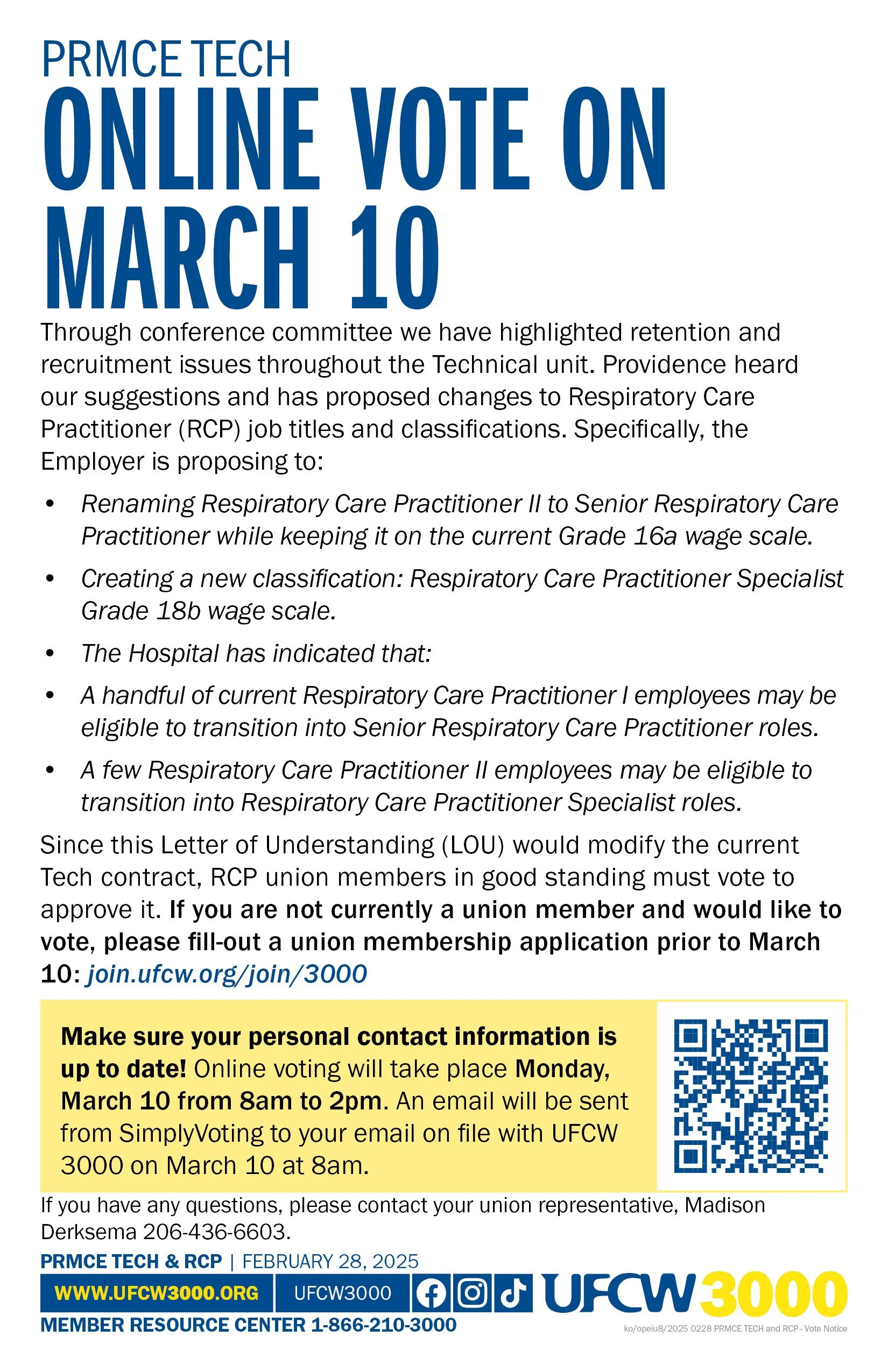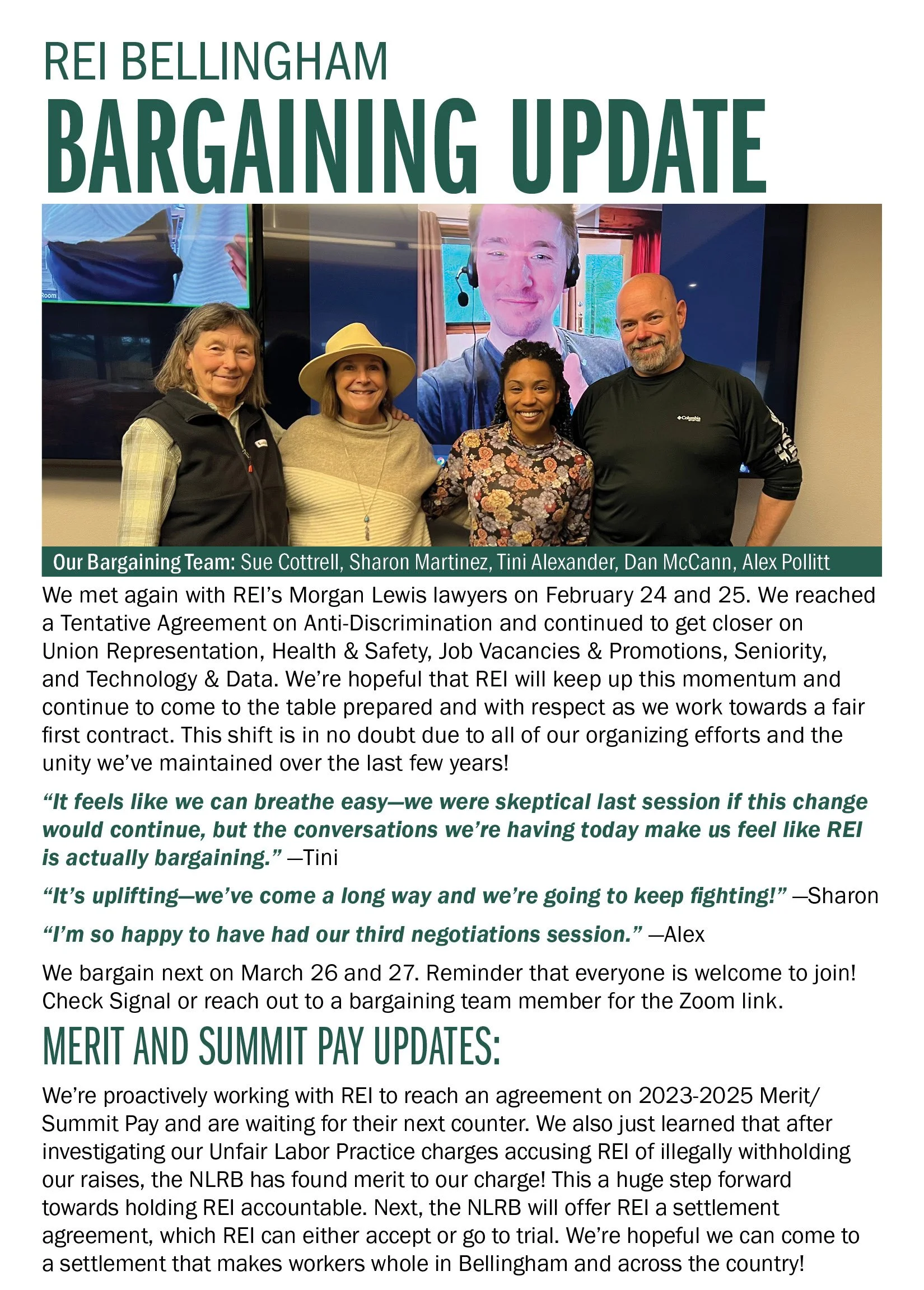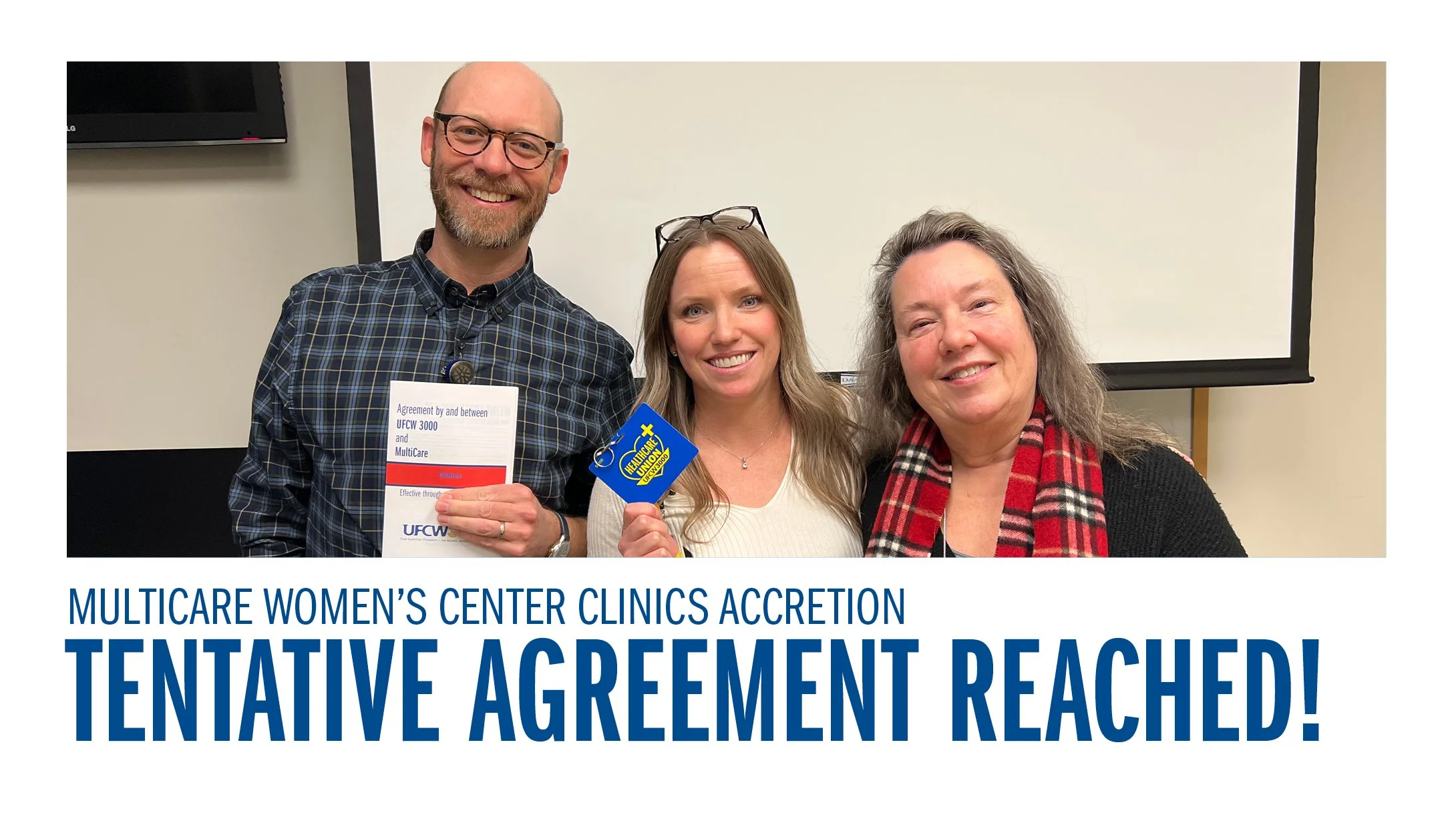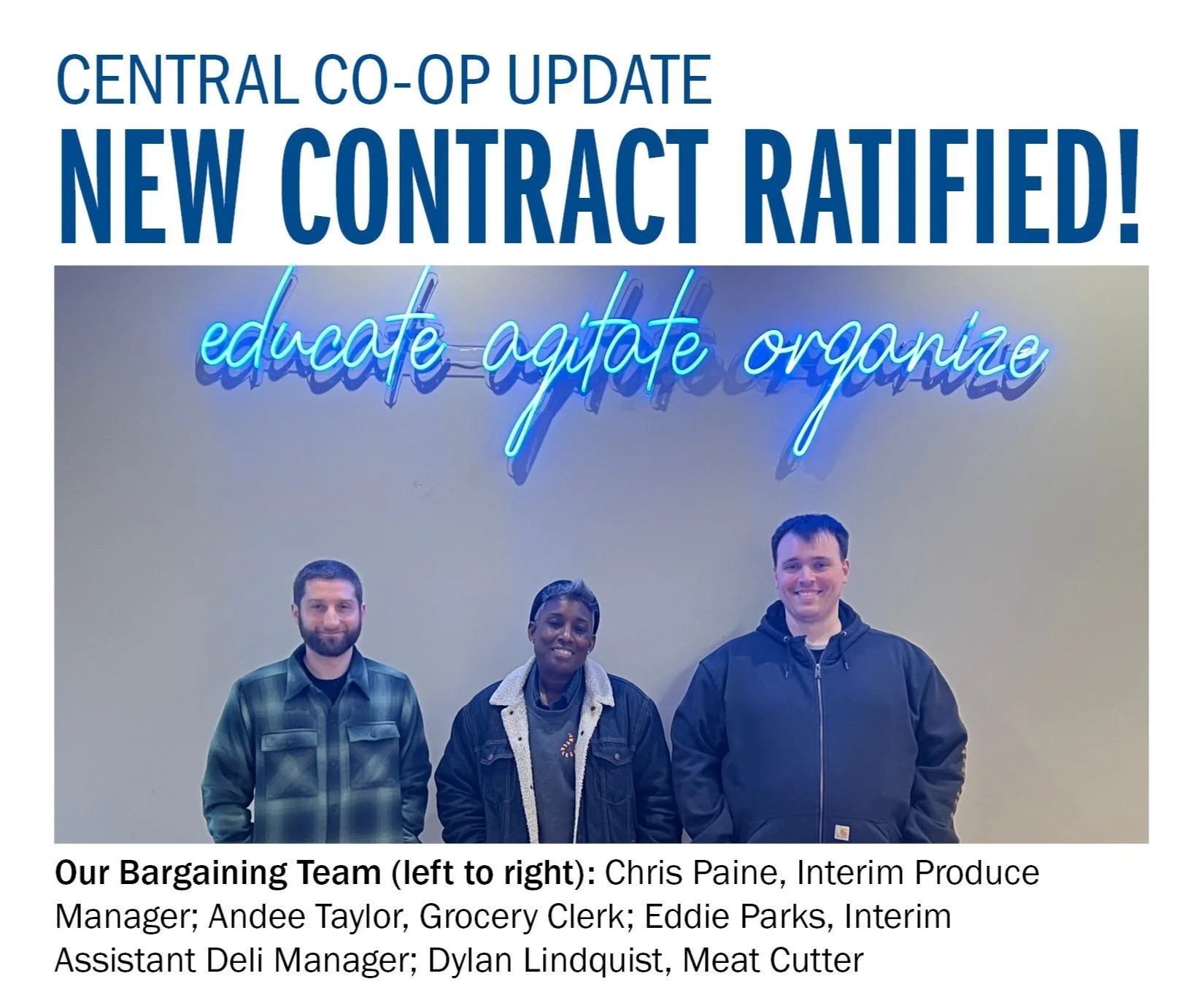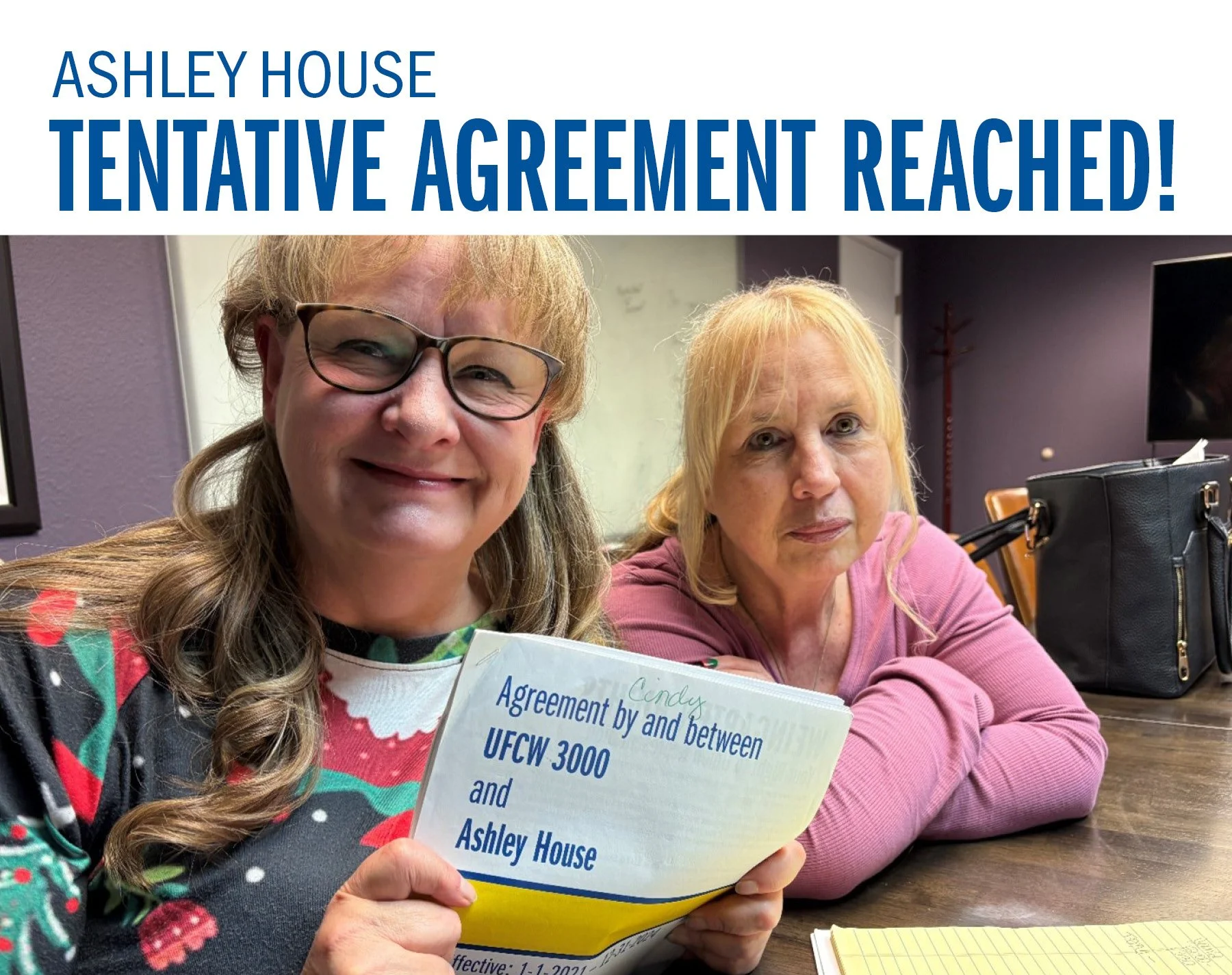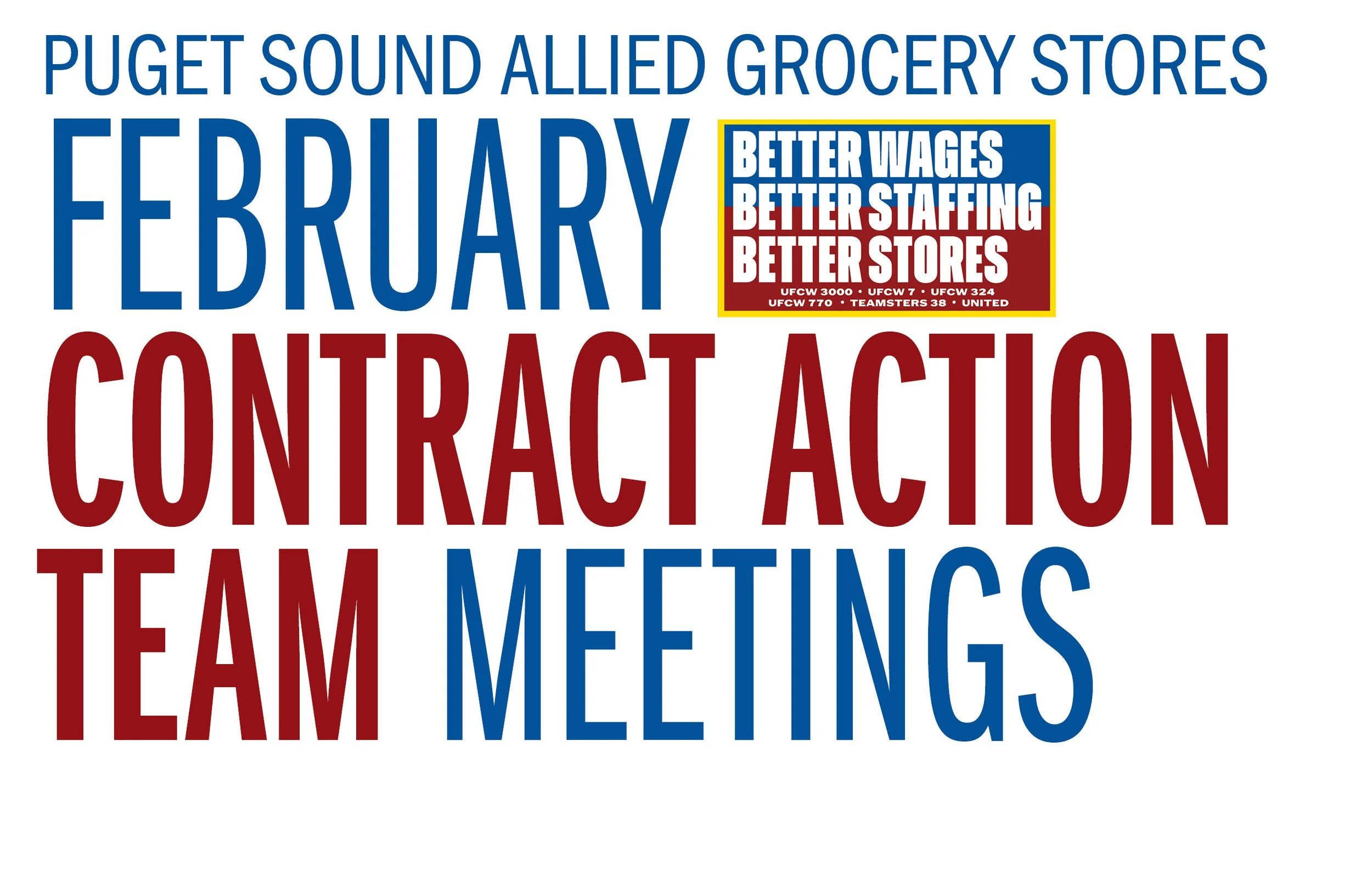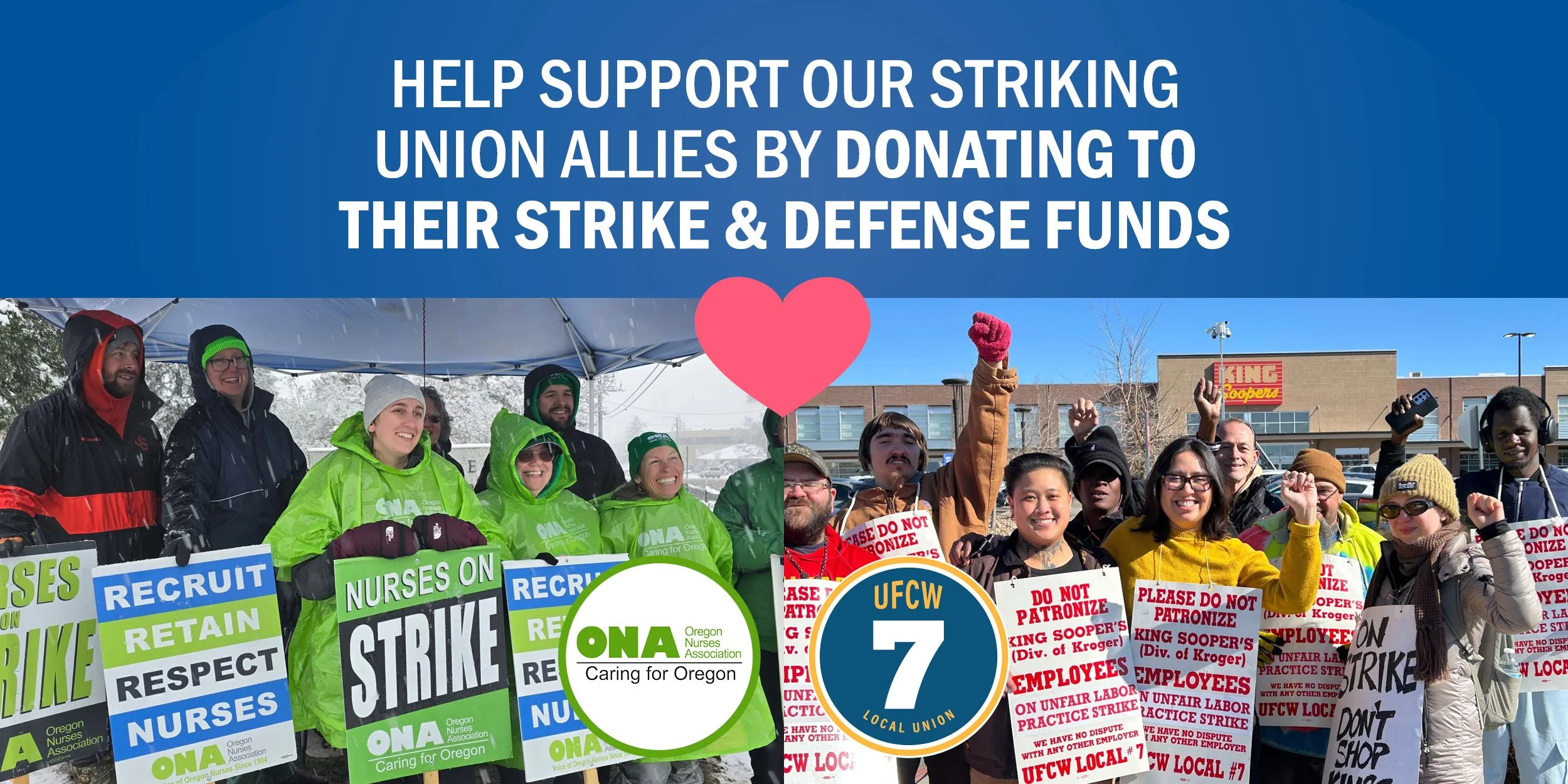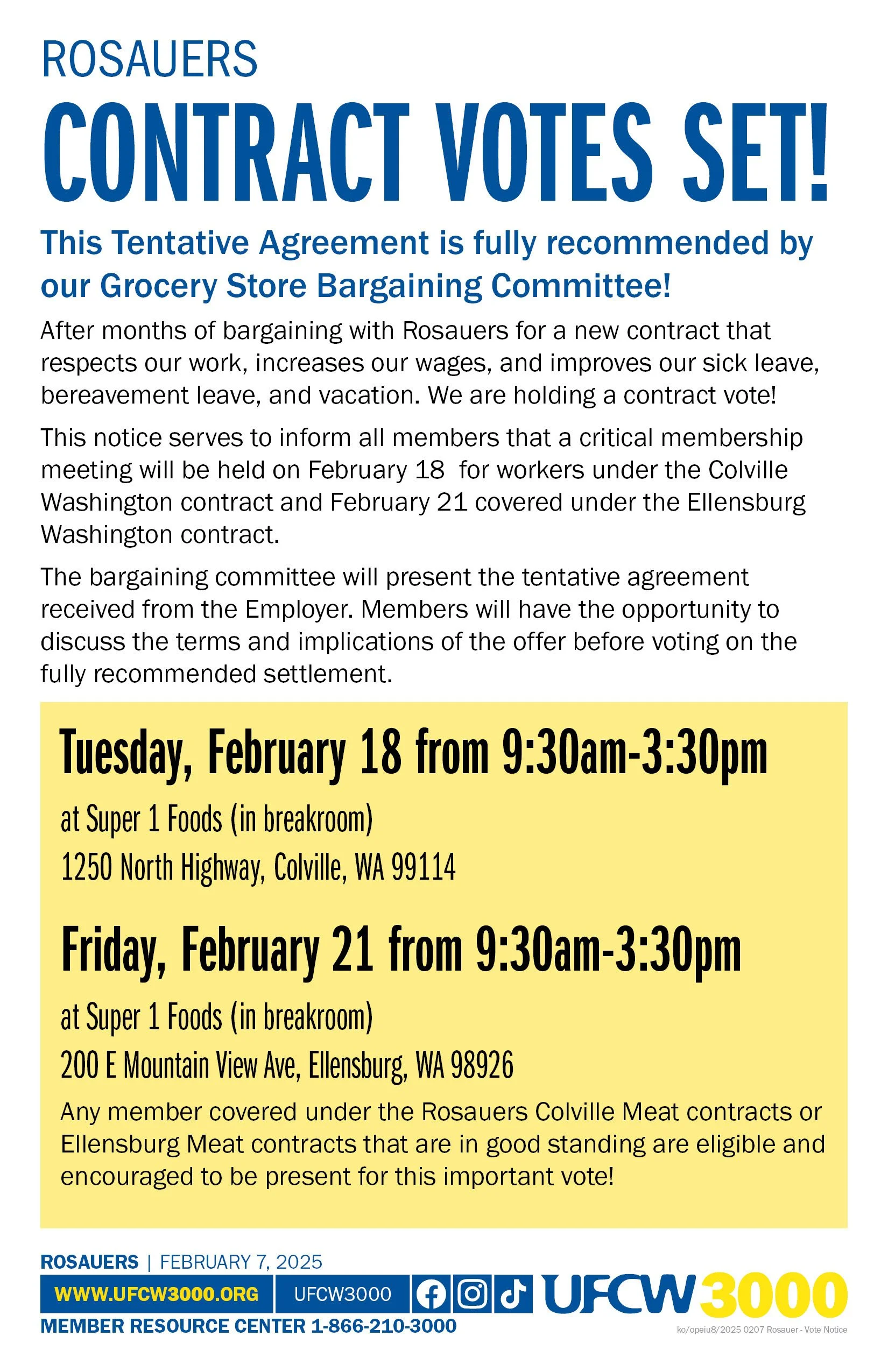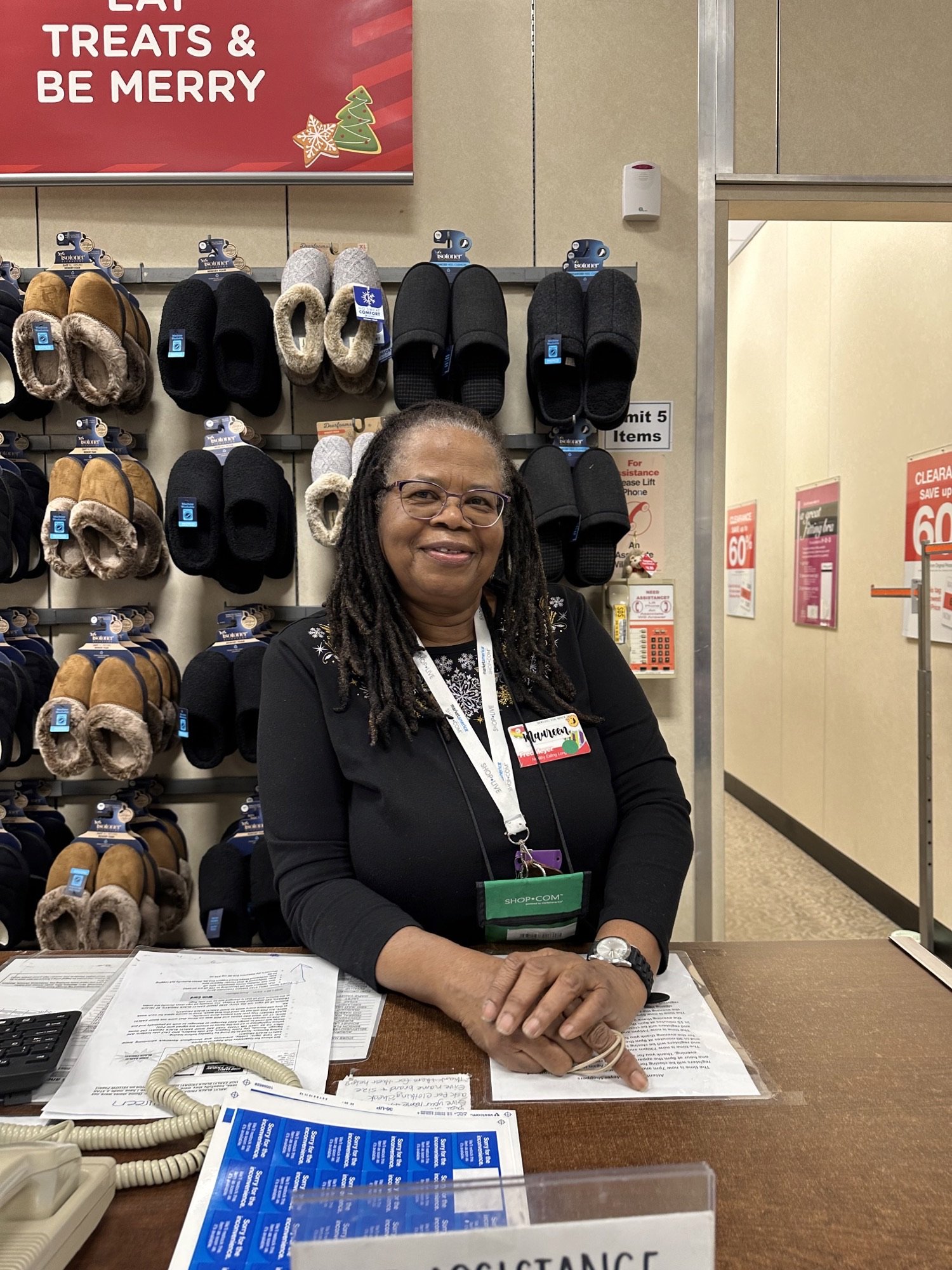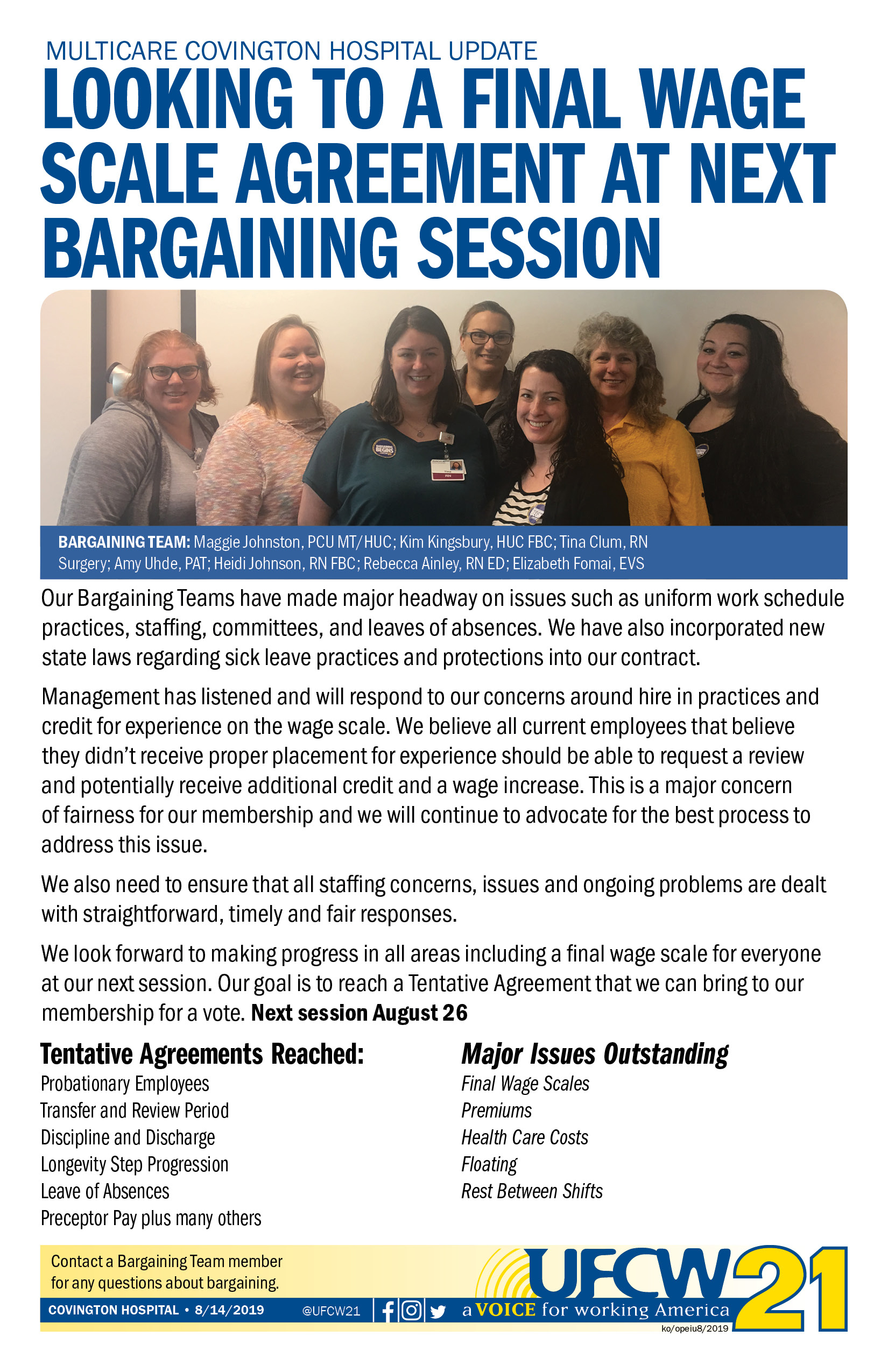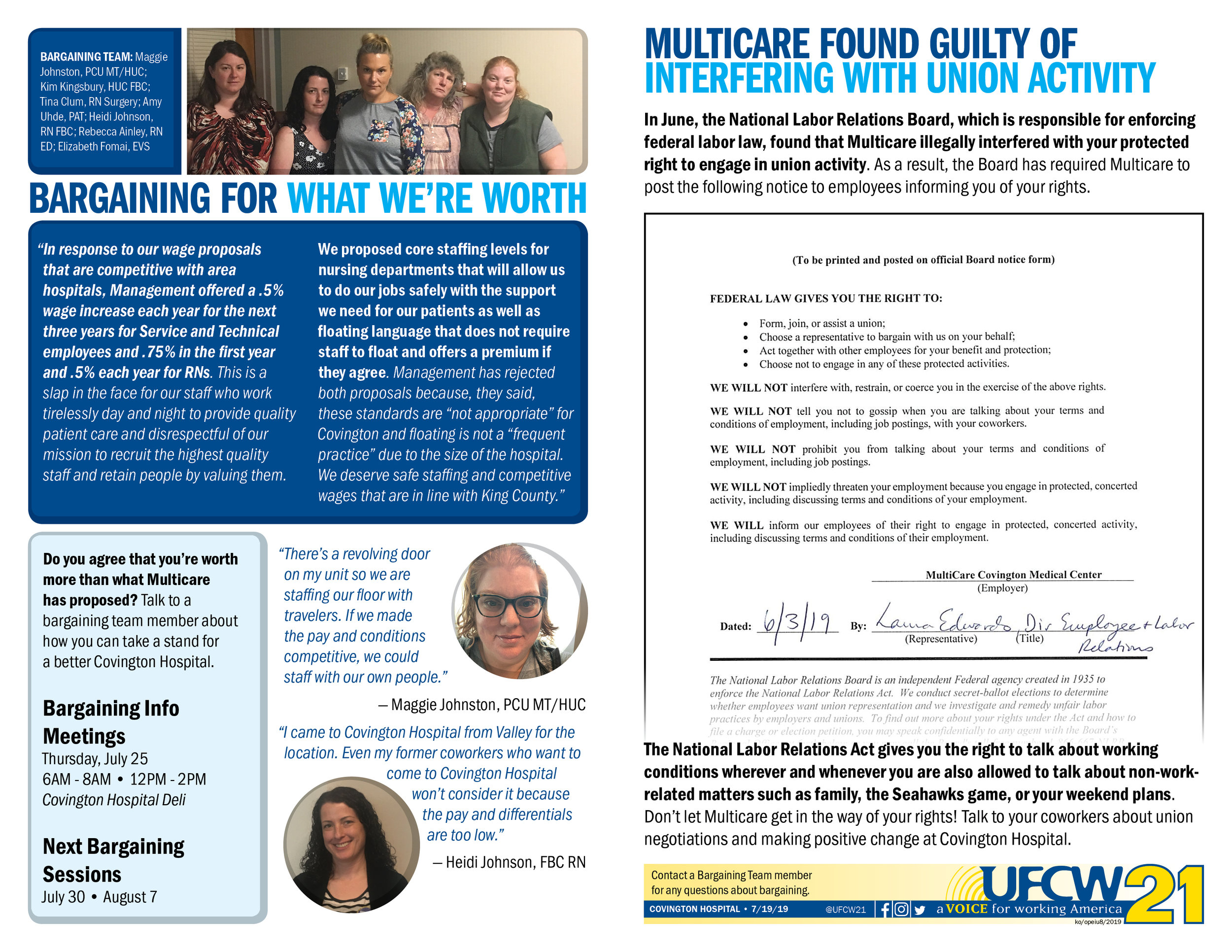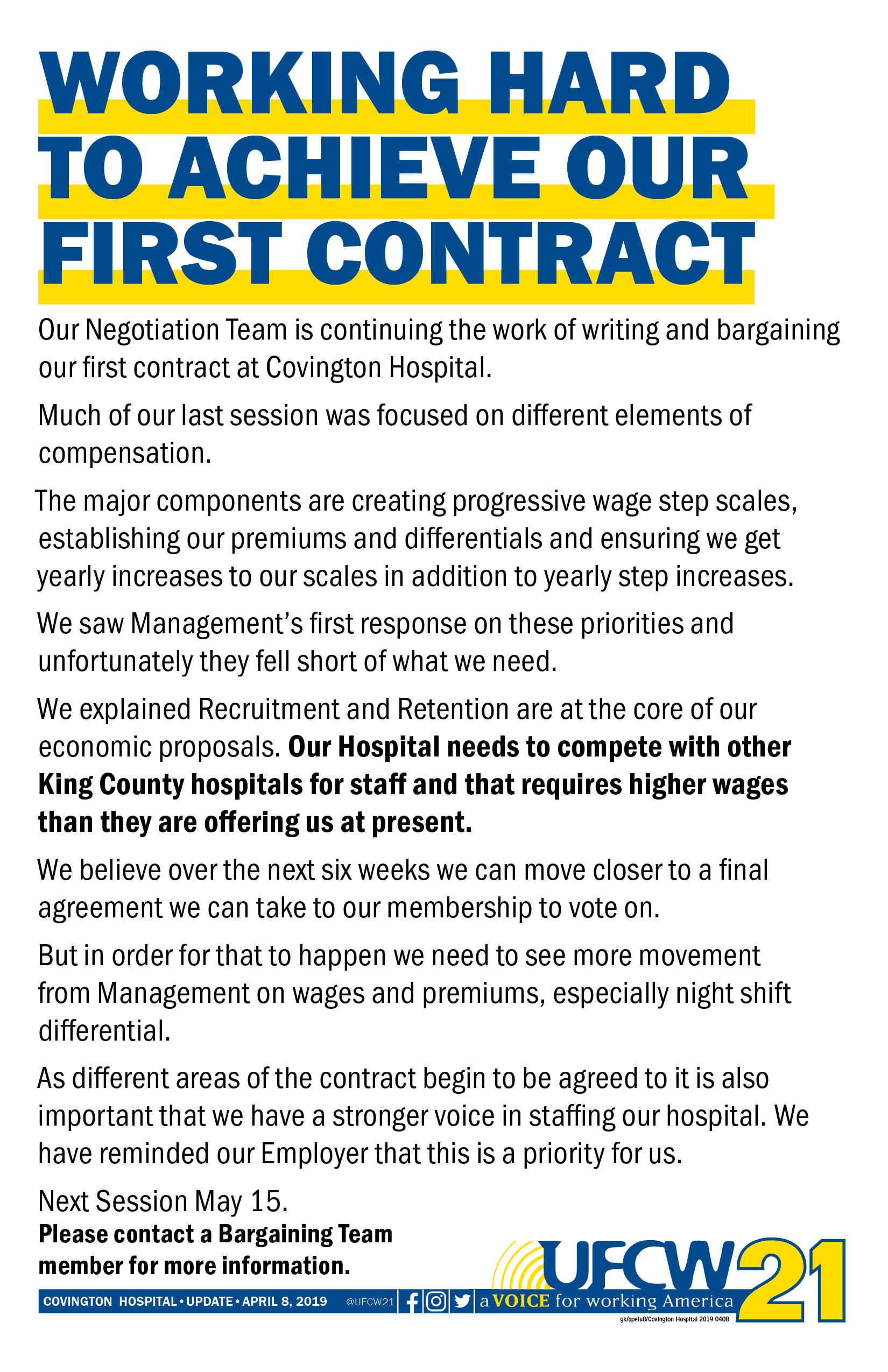MultiCare Covington Medical Center - Respect us, Protect us and Pay us!
/After months of being at a standstill with bargaining, we had a great, productive day. We proposed all our non-economic proposals, sent over our first wage proposals and received Management’s first counter. We are hopeful that Management will do the right thing and respect us, protect us and pay us!
“We have achieved and come to agreements on many of our non-economic language proposals. While not in agreement on everything, we have made a lot of progress!” -Ken Farrell, Charge RN PCU
“We hope Management realizes adequate staffing saves lives!” -Lolita Edge, CS Tech
“Every job class is important and essential to patient care and the function of the hospital. We all deserve to have good benefits and wages!” -Luz Martinez, Patient Care Tech
“It’s time for Management to realize that competitive wages, benefits and a safe working environment are vital to recruitment and retention.” -Faith Soriano-Miller, Charge Rn PCU
Kronos Outage Update —Last year there was a Kronos outage and Management overpaid many of us and then took money out of our paychecks. Our union in partnership with the other unions sued Multicare and won the lawsuit. However, now MultiCare has rejected the courts ruling and is in the process of appealing the Judges decision. We have demanded dates to bargain with Management and continue to work to find a resolution.
Staffing —While we are fighting for strong staffing language at the bargaining table, we also recognize staffing is a huge issue everywhere. We need to continue to elevate the pressure by submitting official complaints to state agencies and fight to pass legislation on staffing. Go to these links and Fill out these staffing forms when you are short staffed.
Collaborative Staffing Intervention (CSI) Report unsafe staffing and/or missed breaks and lunches.
DOSH Complaint —Report safety issues and/or hazardous working conditions directly to the Department of Labor & Industries (L&I).
DOH Complaint —Report unsafe staffing directly to the Washington State Department of Health (DOH). We encourage members who file a DOH complaint to also follow-up with a CSI report, ensuring the hospital as a record of the issue.


